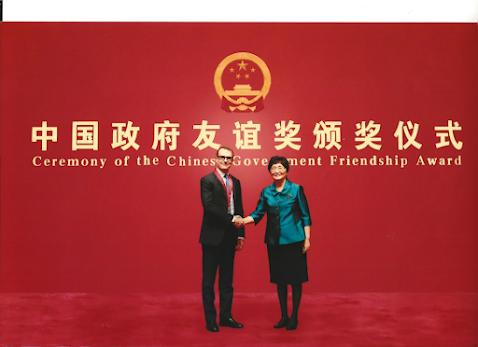Geoengineering Should Be Carefully Considered Because of Its Risks | CBCGDF Climate Change Working Group
As climate change intensifies, the need for innovative solutions to mitigate its impact becomes increasingly urgent. One potential option is the application of geoengineering, or deliberate manipulation of Earth's environmental systems to counteract global warming.
However, geoengineering is not without risks. Some proposed methods, such as solar radiation management, involve reflecting sunlight away from the Earth using materials like sulfate aerosols. While this could potentially lower temperatures in the short term, it could also lead to unintended consequences such as altered precipitation patterns and decreased solar energy for photosynthesis.
Other methods, such as ocean fertilization, involve adding nutrients to the water to stimulate phytoplankton growth and capture carbon dioxide. But this could also harm marine ecosystems and disrupt the ocean food chain.
In addition to these ecological risks, there are also geopolitical and ethical concerns surrounding geoengineering. Who gets to decide which methods are used and to what extent? Could one country take unilateral action that affects the rest of the world? And could we be inadvertently creating a dependency on these technologies rather than addressing the root causes of climate change?
Furthermore, the potential cost of geoengineering could be prohibitively high, diverting resources and attention away from other efforts to address climate change such as reducing carbon emissions and transitioning to renewable energy sources.
While geoengineering may offer some promise as a tool to address climate change, careful consideration of its risks and benefits is necessary. As with any solution, it is essential to thoroughly assess the potential impacts on both the environment and society before implementing any large-scale geoengineering projects.
Translator: Richard
Checked by Maggie
Editor: Richard
Contact: v10@cbcgdf.org; +8617319454776
Contribution
Do you know? CBCGDF is a non-profit organization. We rely on crowd-funding and donations. You have the opportunity to help us to advance biodiversity conservation. Donate TODAY to power up the movement to make it a better world for all life.
1. Webpage:
https://www.paypal.com/donate/?hosted_button_id=2EYYJJZ8CGPLE
2. via paypal
Donation(501C3)Paypal: intl@wbag.org




Comments
Post a Comment